12th March 2024
The Humanitarian Xchange 2024 (HX24) on 20 February marked a milestone moment, bringing together 600 attendees at the Business Design Centre in London, with thousands more joining online, creating a truly global platform for the humanitarian sector.
Over 100 speakers led 39 engaging sessions on a diverse range of humanitarian topics to consider how collectively we can address and tackle pressing global challenges.
One of the aims of HX24 is to inspire one million new humanitarians, requiring engagement with early career researchers and professionals – a mission that resonated with a group of postgraduate students from the Humanitarian and Conflict Response Institute (HCRI) at The University of Manchester.
Among them were Naufal Ridwan from Indonesia; Chihiro Shimizu from Japan; Alejandra Camacho Vega from Mexico; Marielle Dick from Trinidad and Tobago; and Holly Fieldsend, Bridie McGough and Eve Henley from the UK.
In a post-event reflection, Ka Man Parkinson, HLA Communications and Marketing Advisor, caught up with this group at HCRI to hear about their HX24 experience and takeaways.
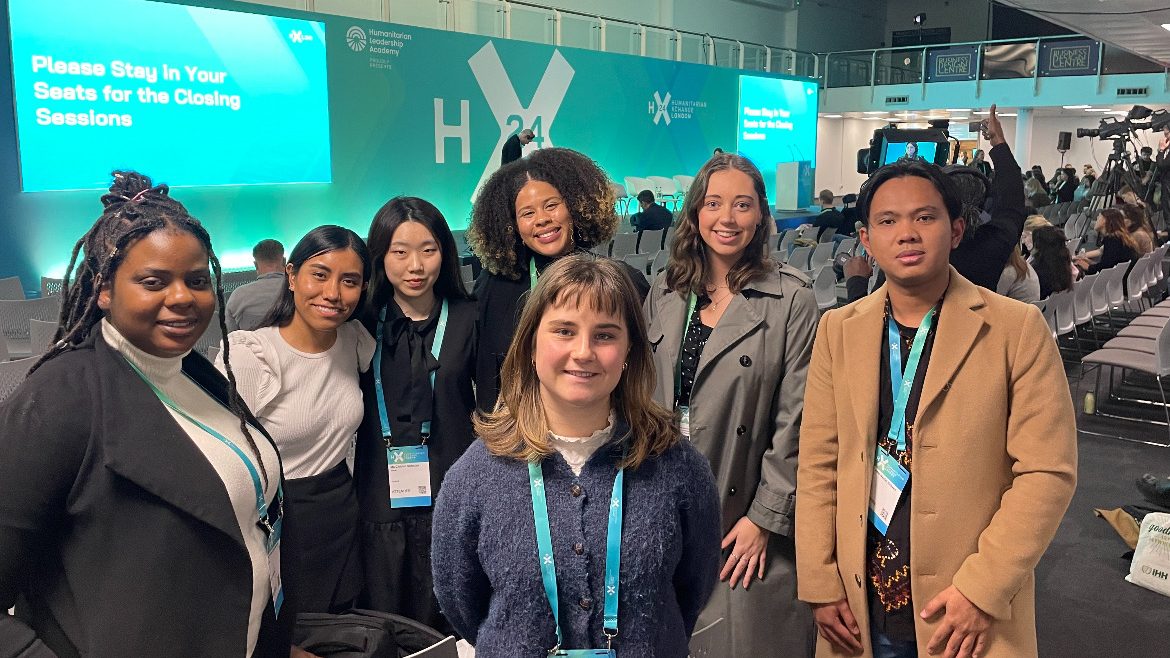
What were you looking forward to most about HX24?
Alejandra: The opportunity to attend a global networking event with humanitarian practitioners from diverse fields to discuss current issues related to humanitarianism.
Bridie: I was looking forward to mixing with humanitarian professionals so I could gain a better understanding of how the humanitarian sphere works in practice and to hear the realities of humanitarian work. I was also looking forward to being involved in some interesting and thought-provoking conversations with experienced practitioners.
Holly: Hearing from such a wide array of speakers, from experts in the field to academics and staple names whose theories we have engaged with at university, such as Hugo Slim.
Marielle: Immersing myself in a setting filled with seasoned professionals within the humanitarian field, eager to learn about what it takes to enter the sector. I also anticipated gaining fresh perspectives on ongoing advancements within the field and understanding the strategies and initiatives envisioned by executives of these humanitarian organisations to enhance support for marginalised communities.
Chihiro: Meeting and talking with professionals to expand the network in the humanitarian sector and open the future for humanitarian work with them. I decided to join the event since I would like to find a space to talk about the future of humanitarian work and create synergy among people engaging in the humanitarian sector.
What were you hoping to gain from the event?
Chihiro: As a master’s student, I was hoping to gain new insights about the current humanitarian system and hear opinions from professionals, both of which are difficult to gain from academic study at the university.
Holly: To gain a new insight into humanitarianism, with new knowledge presented from experts and insightful discussions sparked.
Marielle: By attending in person, I was hoping to broaden my professional network and gain insights from professionals in the field regarding the potential issues stemming from over-professionalisation within the sector, as well as exploring avenues for enhancing its long-term sustainability.
Ridwan: To expand my network within the humanitarian sector and meet numerous scholars. One highlight for me was participating in a session with Hugo Slim, where we discussed the importance of the environmental sector in humanitarian work and why it should be a priority.
Alejandra: To gain new insights into innovation in humanitarian responses. Currently, I am developing my master’s dissertation on innovation in the local integration response for refugees and asylum seekers in Mexico. Therefore, having the opportunity to listen to experts on innovation from different regions was an impactful experience for me. Also, I was hoping to acquire practical strategies and tools to enhance my work in the field.
Bridie: To gain a deeper understanding of the practicalities and realities of humanitarian work, which I believe I did due to the wide range of practitioners and varied organisation workers that had the platform to talk. I was also hoping to have the chance to network and talk with other humanitarian professionals.
What were your top three highlights from HX24?
Holly: My top highlight was hearing from so many different perspectives. I was very happy that there so many diverse voices and not just that of the Global North.
Chihiro: Having a chat with humanitarian people throughout the HX24; listening to the talks of professionals from various fields; and discussing some topics with my colleagues who also joined HX24.
Marielle: Reflecting on the conference, my top three highlights were the discussions surrounding three of the panel sessions I attended (Roundtable Discussion, Humanitarianism in Light of the Gaza Crisis and the Global Implications and Rebuilding Society: Humanitarians Finding Their Place).

I greatly appreciated that panellists offered genuine insights, fearlessly acknowledging the shortcomings within the humanitarian sector, and advocating for a return to its fundamental principles – to help those most in need.
Ridwan: I attended two impactful sessions on polycrises and the environment, both of which shed light on issues faced by workers in the field. If I had to pick my top three highlights:
The realisation that polycrises are a stark reality, and they are interconnected. We can’t prioritise one over the other; we need to address all crises simultaneously.
The recognition that while humanitarian efforts cover various aspects of life like protection and development, prioritising the environment is crucial.
Understanding the political nature of humanitarian work and the necessity of siding with humanity, as emphasised in the closing remarks.
Eve: Firstly, the insightful talk on Gaza, especially the perspectives shared by Jason Hart, a Professor of Humanitarianism and Development at the University of Bath.
Secondly, the roundtable discussion on six major issues in humanitarianism was incredibly enlightening. I was involved in a discussion concerning: ‘Bringing the human back into humanitarian,’ where I gained valuable insights from the personal experiences of professionals in the field. Despite being surrounded by very experienced, bright individuals, I felt included and appreciated for sharing my ideas even though my experiences in the humanitarian sector are less substantial.
Lastly, the event provided an excellent networking opportunity. Engaging in candid conversations with professionals in such a context felt like a privilege and I have made valuable connections that I hope to maintain throughout my career.
Alejandra: Looking for new ways on financing humanitarian responses through local partnerships; transparency and trust in crisis communications; collaboration as a way to shift from current power dynamics in the humanitarian sector.
Bridie: The round table discussions – I found this the most beneficial activity throughout the day.
The talk on Gaza – it is so important to hear about humanitarian professionals discussing about current crises.
The final discussion led by the Trumanitarian podcast – hearing a range of reflections about the discussions had at the conference, from a variety of humanitarians from different backgrounds was extremely valuable to me as a hopeful humanitarian worker.
What was your key takeaway from HX24?
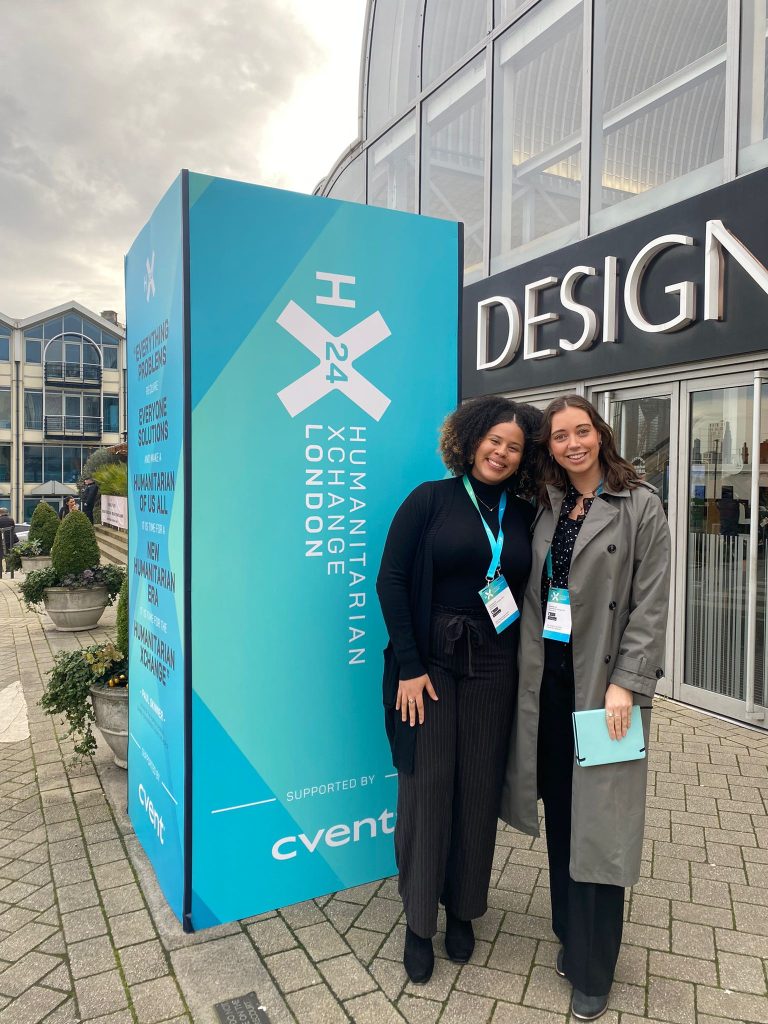
Something needs to change! The main theme that came out of HX24 for me was the general consensus amongst most humanitarian practitioners that something needs to change within the humanitarian sphere.
Bridie: A huge rise in both internal armed conflicts and natural disasters is creating a higher demand on humanitarian organisations, so we, as a community, need to adapt and re-organise the traditional functioning of the humanitarian sphere. I believe and many other humanitarians agree that localisation of aid is the way forward.
Holly: My key takeaway is that localisation is a lot more complicated than I imagined it to be!
Chihiro: I learned a lot from humanitarian professionals about current humanitarian situations around the world as well as their provisions for humanitarian work and the ecosystem around it.
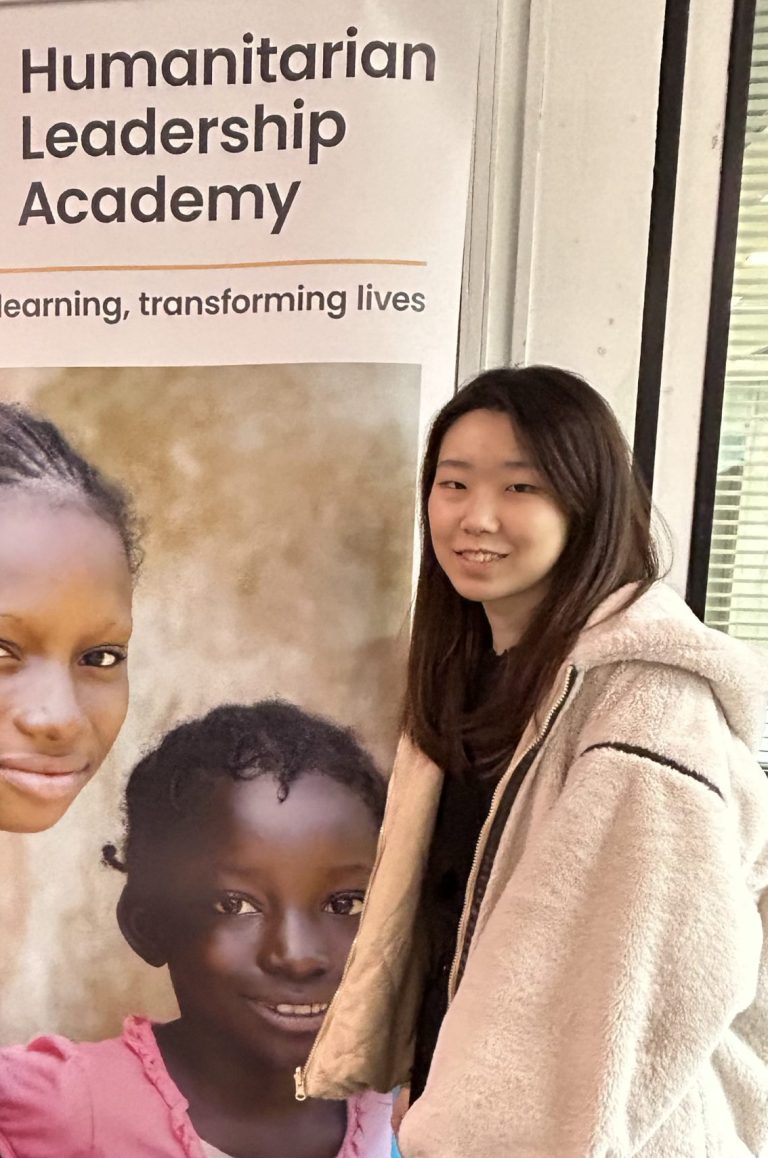
This experience at HX24 inspires me for further study in humanitarianism at the university and my future career as a humanitarian worker.
Marielle: My key takeaway comes from a quote from Rachel O’Brien, Director at the Humanitarian Leadership Academy, “Be purposeful, progressive and hungry for the change you want to see.”
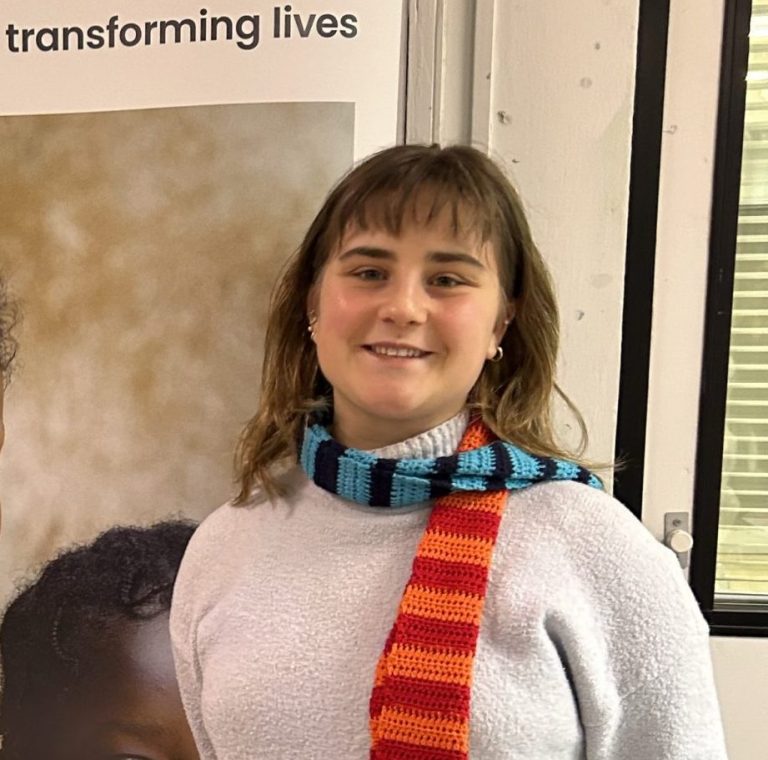
My key takeaway is that we must consistently remind ourselves and those around us to prioritise the needs of affected communities, even when dealing with the frustrating bureaucracy of the humanitarian sector.
Do you have any follow-up actions or ideas after attending HX24?
Bridie: HX24 highlighted the sector-wide need to localise aid and adapt to cross-sector functioning. This is something I believe would be extremely beneficial to the humanitarian sector as a whole, but it was rewarding to hear that this seems to be the general consensus. This has encouraged me to complete my final master’s research project about the realities of localising aid.
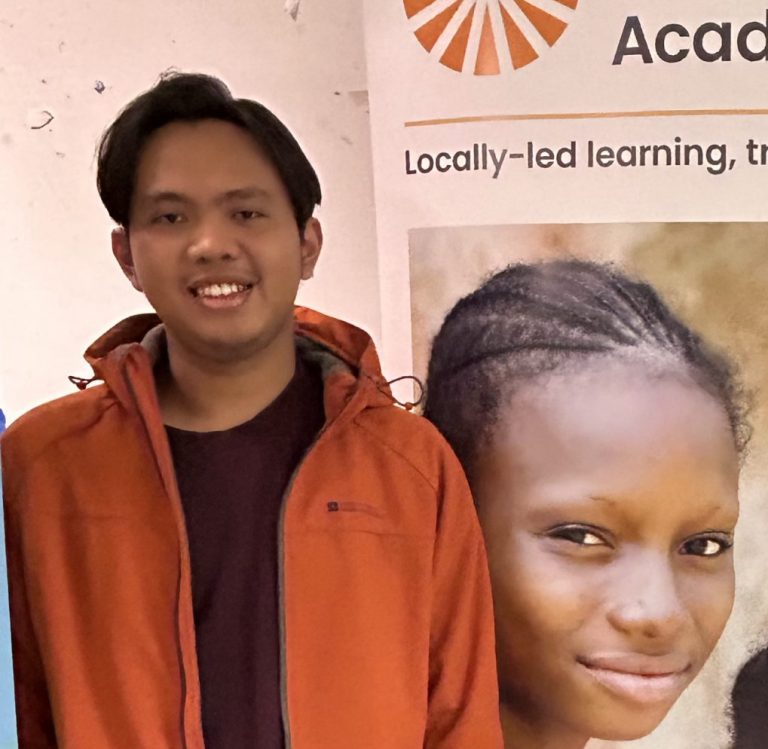
I’ve established connections with several INGOs through this event and acquired their contacts. As a postgrad student, I’ve reached out to some of them regarding potential internships after completing my master’s. It has been genuinely helpful.
Marielle: After attending HX24, I plan to engage with Humanitarian Leadership Academy’s global learning platform, Kaya. After learning about this platform, I’m eager to benefit from the online courses on offer to build my portfolio and expand my knowledge horizon.
Chihiro: I would like to keep myself up-to-date on discussions surrounding a humanitarian system and also exchange opinions actively with my master’s colleagues and professors.
Eve: HX24 has filled me with hope, rooted in the voices of the individuals who spoke, that the future of the humanitarian sector will be guided by a greater and sustained emphasis on collaboration, localisation and compassion.
Could you sum up your HX24 experience in one sentence?
Chihiro: I found HX24 a space to open the future for humanitarian work and foster synergy among humanitarian people.
Marielle: An immersive experience that left me pondering on the future of the humanitarian sector and the individuals it serves.
Bridie: An inspiring and thought-provoking environment that restored my faith in the humanitarian sector.
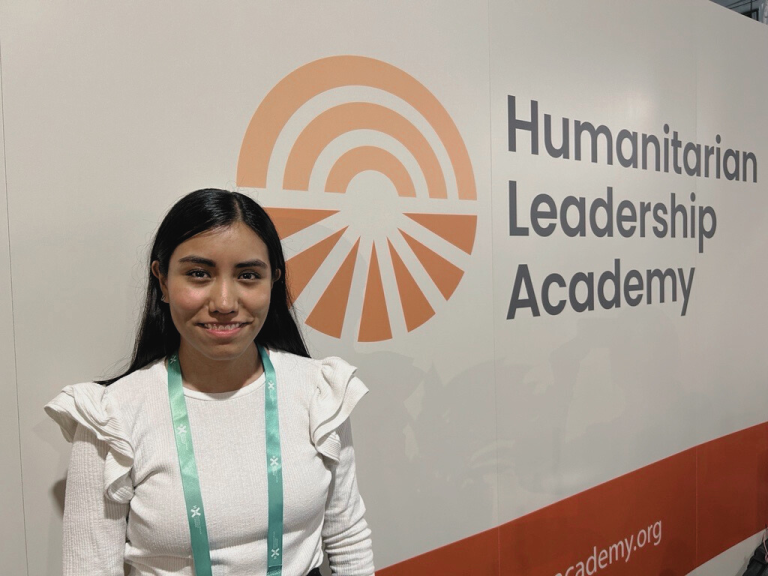
HX24 was an enlightening experience with meaningful discussions and valuable connections that gave me insights on ethics, collaboration and innovation in the humanitarian sector.
With thanks to Alejandra, Bridie, Chihiro, Eve, Holly, Marielle and Ridwan! We wish you all the best with your next steps on your humanitarian learning and career journeys.
